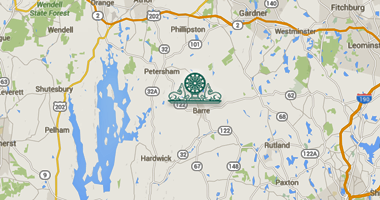No other thing do I know, on account of which unarisen ill will does not arise and arisen ill will is abandoned, so much as on account of this: the liberation of the heart by loving-kindness. For one who attends properly to the liberation of the heart by loving-kindness, unarisen ill will does not arise and arisen ill will is abandoned.
(Nyanaponika & Bodhi, Numerical Discourses of the Buddha, p. 34)
This passage points directly to why the development of loving kindness (mettā-bhāvanā) is so transformative.
In Buddhist thought the mind is understood as unfolding drop by drop in an stream of consciousness; that is, what appears as a continuous narrative is actually composed of a large number of brief moments that arise and pass away in rapid succession. Like snapshots linked together on a film strip, our mind actually only works on one project at a time, assembles one brief view of what is going on in one instant, and then immediately erases the slate and crafts another scene in the next moment.
Once consequence of this model is that the mind can actually only take one thing at a time as an object of awareness, and moreover, it can do so with only one attitude or emotional response (saṅkhāra) at a time. Among our repertoire of emotional responses, loving kindness and ill will are polar opposites, and cannot arise together in the same moment. When it appears we both love someone and hate them at the same time (ever been in an intimate relationship?) these are actually two entirely different constructions alternating rapidly one after another.
So, every moment when one is manifesting loving kindness in the mind, its opposite, ill will, is locked out and cannot manifest. The Buddha likens this to a pot filled to the brim with water, such that Māra (symbolic of the shadow side of our psyche) can gain no access. In formal mettā practice, when many moments of loving kindness are strung together with no break in continuity, ill will (and all other unwholesome states) cannot and do not arise. This has a purifying effect on the mental activity of the moment, and “the heart is liberated [from ill will] by loving kindness.” It also generates wholesome dispositions, habits of mind and behavior that become strengthened and reinforced in the unconscious, which is fundamentally transformed in the direction of the wholesome.
Try this out for yourself. Notice how, when you think the best of someone, an emotion of loving kindness naturally arises, and when you think of a fault or some slight, this is replaced by an attitude of annoyance or even ill will. Then try deliberately toggling between the two. See if you can detect the visceral experiential difference between the two mind states. What does it feel like (using the English vernacular) to experience love? What does ill will feel like?
The Buddha’s message here, as I understand it, is that at every moment we have a choice as to which of these two attitudes/emotional responses we manifest in our experience. Yes, the conditioning might be very strong in one direction or another (“…but they are being such a jerk!”), yet shifting gears from one to another can be far easier and more accessible than we are used to thinking. Enact loving kindness, and ill will disappears, as turning on a light will expel the darkness.
Explore this deeply in your own experience—all the time.



